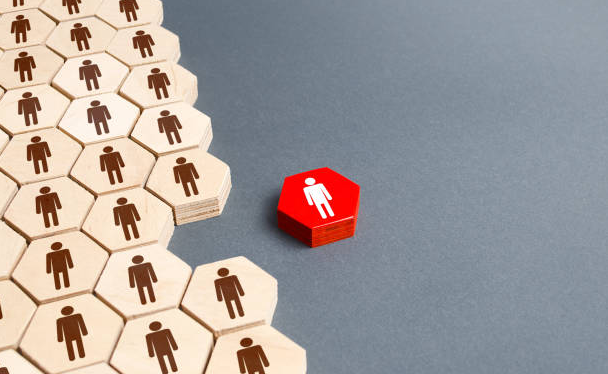Life is a mystery, we really don’t have all the answers. Sometimes, we need to hear so many ‘NOs’ before we get the big ‘YES.’ We might need to kiss so many frogs before we find our prince charming. The road to success is fraught with pain and rejection, but each ‘NO’ takes us closer to our big ‘YES.’
We as people have a fundamental need to belong. Just as we have needs for food and water, we also have needs for positive and lasting relationships; it is a part of our human nature. Rejection usually raises its ugly head in our relationships, careers, marriages, love, just to mention a few.
The pain of being rejected is not so different from the pain of physical injury. It is stronger than physical pain… why? That is because the mind keeps playing it over and over, an endless loop.
Imagine slapping ourselves on the face. It hurts, but it is forgotten. However, with rejection, it can go on for years. The pain is deeper, and once the mind keeps repeating the experience, it triggers the same feelings we had of being slapped.
Rejection and exclusion cause physical pain because that pain is a warning sign to help us survive. As we developed into social creatures, social interactions and relationships became necessary for our survival. Being excluded from a social relationship or social interaction like peer, romantic, family rejection, can make us feel lonely, isolated and ostracised.
We have a survival instinct to be a member of a wolf pack. In the olden days when a person is excluded from the village, it was so hard to survive on their own, hunt, and so much more. We are sociable by nature. We need social contacts to survive, and if we don’t have this, we end up being lonely.
Often times, we begin to lose our confidence, feel insecure, and start overthinking things. The fear of being rejected again, like applying for a job, asking a person on a date, scared to voice out our feelings, it takes a while to muster courage to ask again; rejection is a hard pill to swallow.
Some of us when rejected find it hard to accept and end up burying our heads in the sand; we live in constant denial, not wanting to face up to the truth and take charge of the situation. The fear of hearing that word ‘NO’ is too hard to accept, and probably better to deny it than face it.
Rejection can lead to anti-social behaviours. Social exclusion produces aggressive behaviours. Chronic rejection can turn us into an angry, aggressive, bitter and resentful person, and being ostracised can make us violent.
In the same vein, it can lead to very low self-esteem. We all like to be loved and accepted, and we even go out of our way, hiding our true self just to be accepted by friends, family, society, for fear of rejection. Once we are rejected, it affects our wellbeing, we start developing a complex, we feel we are not good enough, it takes time and process to get back to normal.
Having been turned down so many times on a job application, job interview or been sacked so many times, can turn us into a very negative person. We will start seeing the glass as half empty, our perception of life can change and we keep feeling that no matter how hard we try we are always going to be told ‘NO,’ and we ask ourselves: ‘What is the point?’ We start having a negative view about life, especially areas we have experienced rejection.
Quite shockingly, rejection can lead to murder and suicide; most people cannot deal with the pain of rejection. Teenagers that get bullied or teased have the tendency to be suicidal because of it. A job loss, divorce and relationship break ups can have a deep psychological effect. Partners sometimes go as far as killing their spouse because they can’t bear the thought of not being with the person anymore or the person is with someone else; they refuse to accept ‘NO’ as the answer.
Sadly, it can lead to deep sadness, cause enormous stress and affect our heath and general wellbeing. People who routinely feel excluded have poorer sleep quality, and their immune systems does function as well as those of people with strong social connections. In clear terms, rejection causes anxiety issues, depression, and high blood pressure (especially when people keep reliving the experience in their mind).




